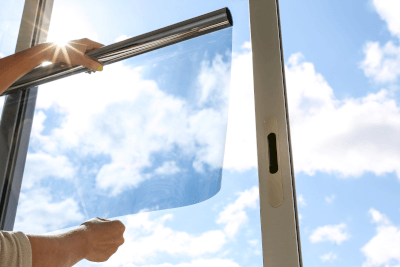What Is a UV Resistant Sheet?

UV resistant sheets are materials designed to block ultraviolet (UV) rays, offering protection against sunlight and UV radiation outdoors. These sheets prevent UV-induced material deterioration and color fading, extending the service life of the objects they cover. They are particularly beneficial for maintaining the vivid colors of outdoor advertisements and banners over time.
However, the effectiveness of UV resistant sheets varies by quality, with lower-quality options providing less UV protection and potentially degrading faster. It’s crucial to choose high-quality sheets from reputable manufacturers to ensure adequate UV resistance.
Uses of UV Resistant Sheets
UV resistant sheets are utilized in various sectors for their UV blocking and weather-resistant properties.
1. Outdoor Advertisements
They are commonly employed in the outdoor advertising industry for signboards, banners, and advertising panels, helping maintain color vibrancy and visibility over time.
2. Automotive Industry
Used for window films, headlight and taillight covers, and interior trims in vehicles, these sheets provide UV protection and enhance weather resistance.
3. Construction
Applied to window glass and exterior panels of buildings, UV resistant sheets protect interiors from UV rays, preventing harm and material deterioration while maintaining the building’s appearance.
Principle of UV Resistant Sheets
UV resistant sheets work by incorporating UV-absorbing materials like zinc oxide or titanium dioxide into their composition, which block or absorb UV rays while allowing visible light to pass through. This selective absorption or reflection protects objects from UV damage without significantly altering visibility through the sheet.
How to Select UV Resistant Sheets
Key considerations for selecting a UV resistant sheet include:
1. UV Resistance
Verify the sheet’s UV resistance level, favoring those with added UV absorbers for enhanced protection. Choose sheets appropriate for outdoor use, capable of withstanding weather conditions.
2. Transparency
Consider the sheet’s transparency to ensure it allows for the passage of visible light, especially important for applications like architectural windows.
3. Dimensions
UV resistant sheets are often available in rolls and should be cut to size based on the application needs, such as for advertising banners or signs.
4. Thickness
The sheet’s thickness impacts its durability and UV protection level, with thicker sheets generally offering better protection but less flexibility, affecting suitability for certain uses.